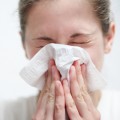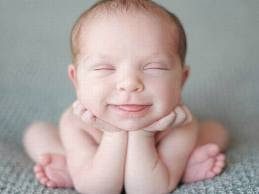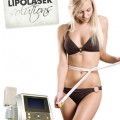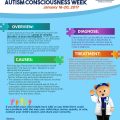Babies are usually quite susceptible to getting colds and other virus-related issues because their immune systems are brand new and take time to fully develop. That said, your baby will get colds during their first few years of life. While these sniffles are rarely severe, they can cause significant discomfort for your child and make them hard to deal with. Your immediate reaction may be to type “gamot sa sipon ni baby” on Google to look for recommendations as a parent. However, many don’t realize that medication won’t really help if your baby is under 6 months old.
If you have a baby with a mild cold, your priority is to naturally minimize the symptoms and help your child feel better until the cold goes away on its own. Here are some things you can do at home to make your baby feel more comfortable:
Give your baby extra fluids. Keeping your baby hydrated can help decrease the cold symptoms because it keeps their nose and mouth moist and prevents them from getting dehydrated from excessive sneezing and mucus production. Make sure to nurse your baby more often when they have a cold to supply the additional fluid. If your child is older and has already been weaned (6 months and up), you can give them water and pure fruit juice instead.
Saline and suction to relieve nasal congestion. A stuffy nose can be uncomfortable for a baby because it obstructs their breathing, and they are still unable to blow their nose. Take care of the mucus blocking their nostrils by spraying some saline solution into each nostril. You can easily buy a saline solution from a drugstore (most are safe to use on babies), or you can make your own using a bit of salt with distilled or boiled water.
After spraying the saline solution, just wait for the loosed mucus to run down and wipe it. On the other hand, you can also use a bulb syringe to gently suck out the mucus if it’s too thick. Just squeeze the bulb, place the tip on your child’s nostril, slowly release the bulb, and slowly suction out the mucus. Then, wash the syringe with soap and water after using it.
Turn on the humidifier. Dry air can worsen cold symptoms in infants, so keeping the air moist with a humidifier can help offer relief because your baby’s nose will dry out less. Before purchasing one, ask your pediatrist whether they would recommend a warm- or cool-mist humidifier. While a warm humidifier poses a lower burn hazard for your older children, a cool-mist humidifier may not work as well during the rainy season.
Wash your hands before holding your child. While this measure is more preventative, it can still help ease your child’s cold symptoms. Before you or anyone else in your household picks up the baby, make sure they thoroughly wash their hands first. Since babies can get colds from contact with other people, you, your spouse, and other children should hold them with clean hands while they’re still sick. This prevents your baby from further infection and getting sick from something else.
 Disinfect surfaces your baby frequently touches. Viruses that cause colds can be transmitted through the air or through surfaces that your baby comes in contact with. It can help to disinfect anything your child comes into contact with at your home, especially when they have a cold.
Disinfect surfaces your baby frequently touches. Viruses that cause colds can be transmitted through the air or through surfaces that your baby comes in contact with. It can help to disinfect anything your child comes into contact with at your home, especially when they have a cold.
Things to disinfect are your baby’s toys, play area, crib, and other surfaces. Make sure everyone else in your household does this too.
Give children medication when prescribed by a doctor. If your baby is older than 6 months, it is safe to give them medicine for a cold, especially if they begin to develop a fever. There are fever-reducing medications that are specifically formulated for babies at this age and should be safe. While most of these medications are available over the counter, there’s nothing wrong with asking your doctor about it just so you’re on the safe side.
Call the doctor if your baby’s cold symptoms aren’t getting better after a week or so, especially if your infant is younger than 6 months. Additionally, you also need to contact the doctor if you see other symptoms like a high fever, difficulty breathing, loss of appetite, dehydration, and unusual drowsiness. These symptoms can indicate a more serious illness and should be looked at by a doctor right away.
Babies are prone to colds, but they’re usually nothing to fret over. Try to do what you can first, like the home remedies mentioned above, because keeping your child comfortable should be your priority. If symptoms persist or even worsen, do not hesitate to call your doctor right away. You can keep your child healthy while giving yourself peace of mind.


 (4 votes, average: 4.00 out of 5)
(4 votes, average: 4.00 out of 5)









